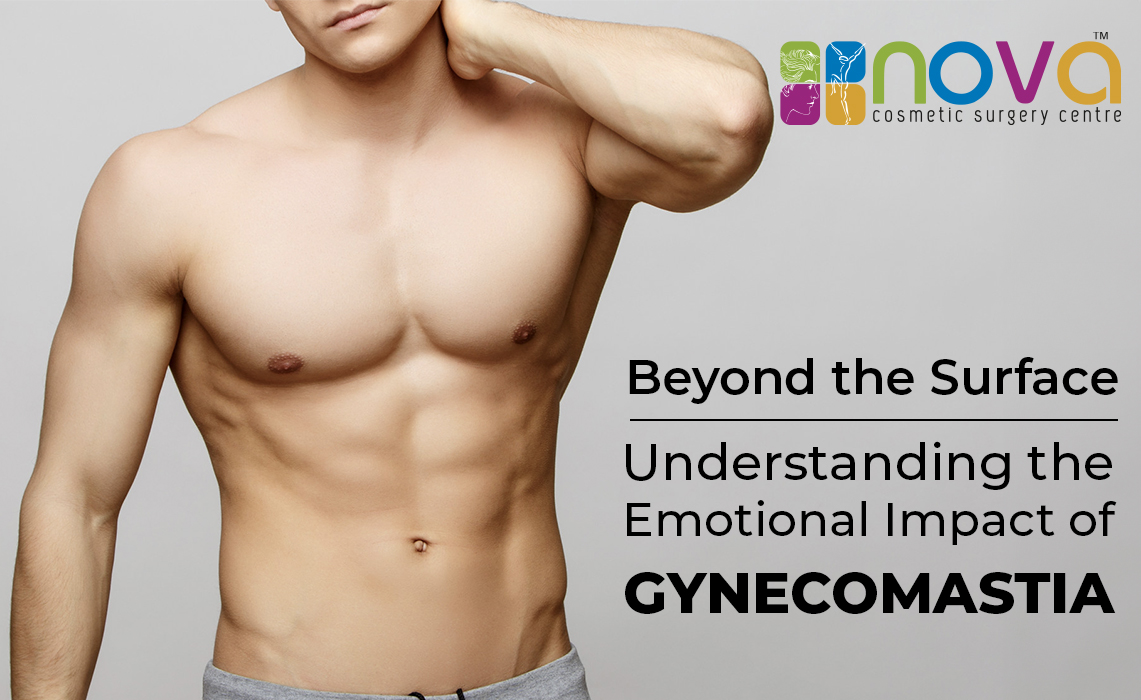Gynecomastia Emotional Impact
by Admin
Posted on 10-12-2024 01:29 PM

What is Gynecomastia
Gynecomastia is a common condition that affects an estimated 40-60% of men. It can occur at any age, but it is most commonly seen in adolescents and older men. The condition is characterized by the growth of breast tissue, which can be tender or painful to the touch. Gynecomastia can be caused by a variety of factors, including hormonal imbalances, certain medications, and underlying medical conditions.
Causes and Risk Factors
The causes of gynecomastia can be divided into two main categories: physiological and pathological. Physiological gynecomastia occurs during periods of hormonal change, such as puberty or aging. Pathological gynecomastia, on the other hand, is caused by underlying medical conditions, such as hypogonadism or testicular cancer. Certain medications, including anabolic steroids and anti-androgen drugs, can also contribute to the development of gynecomastia. For those affected, Gynecomastia surgery may be a viable option to consider.
Physiological Gynecomastia
Physiological gynecomastia is the most common type of gynecomastia. It occurs during periods of hormonal change, such as puberty or aging. During these periods, the balance of estrogen and testosterone hormones can be disrupted, leading to the growth of breast tissue. Physiological gynecomastia is usually temporary and resolves on its own once hormone levels return to normal.
Pathological Gynecomastia
Pathological gynecomastia, on the other hand, is caused by underlying medical conditions. Certain medical conditions, such as hypogonadism or testicular cancer, can disrupt hormone production, leading to the growth of breast tissue. Pathological gynecomastia can also be caused by certain medications, including anabolic steroids and anti-androgen drugs.
Emotional Impact
The emotional impact of gynecomastia can be significant. Men with gynecomastia may feel embarrassed, ashamed, or self-conscious about their appearance, leading to social withdrawal and avoidance of intimate relationships. The emotional toll of gynecomastia can be just as debilitating as the physical symptoms, making it essential to address the emotional aspects of the condition.
Low Self-Esteem
Gynecomastia can have a profound impact on a person's self-esteem. Men with gynecomastia may feel embarrassed or ashamed about their appearance, leading to low self-esteem and confidence. This can affect all areas of life, including relationships, work, and social interactions.
Body Image Issues
Gynecomastia can also affect a person's body image. Men with gynecomastia may feel self-conscious about their appearance, leading to avoidance of certain activities, such as swimming or exercising in public. This can lead to social isolation and decreased quality of life.
Treatment Options
Fortunately, there are several treatment options available for gynecomastia. The goal of treatment is to reduce the size of the breast tissue and alleviate any associated symptoms. Treatment options may include medication, surgery, or a combination of both.
Medication
Medication is often the first line of treatment for gynecomastia. Hormone-regulating medications, such as tamoxifen or raloxifene, can help to reduce the size of the breast tissue. These medications work by blocking the effects of estrogen on the breast tissue.
Surgery
Surgery is often necessary to remove the breast tissue and restore a more masculine chest contour. There are several surgical options available, including liposuction, mastectomy, and breast reduction surgery. The type of surgery will depend on the severity of the condition and the individual's overall health.
Living with Gynecomastia
Living with gynecomastia can be challenging, but there are several ways to manage the condition and reduce its emotional impact. Men with gynecomastia can benefit from support groups, counseling, and self-care activities, such as exercise and meditation.
Support Groups
Support groups can provide a safe and supportive environment for men with gynecomastia to share their experiences and connect with others who are going through similar challenges. Support groups can be found online or in-person, and can be a valuable resource for men with gynecomastia.
Counseling
Counseling can also be beneficial for men with gynecomastia. A therapist can help individuals to address any underlying emotional issues, such as low self-esteem or body image concerns. Counseling can also provide a safe and supportive environment for men to discuss their feelings and concerns.
Conclusion
Gynecomastia can have a profound emotional impact on those affected. The condition can affect a person's self-esteem, body image, and overall mental health. However, with the right treatment and support, men with gynecomastia can manage their symptoms and improve their quality of life. It is essential to address the emotional aspects of gynecomastia, in addition to the physical symptoms, to provide comprehensive care and support.
FAQs
What is the main cause of gynecomastia?
The main cause of gynecomastia is a hormonal imbalance, specifically an excess of estrogen and a deficiency of testosterone.
Can gynecomastia be treated with medication?
Yes, medication can be used to treat gynecomastia. Hormone-regulating medications, such as tamoxifen or raloxifene, can help to reduce the size of the breast tissue.
Is surgery necessary to treat gynecomastia?
Surgery may be necessary to remove the breast tissue and restore a more masculine chest contour. However, the decision to undergo surgery should be made on a case-by-case basis, taking into account the individual's overall health and the severity of the condition.
Can gynecomastia be prevented?
In some cases, gynecomastia can be prevented by avoiding certain medications and underlying medical conditions that can contribute to the development of the condition. However, in many cases, gynecomastia is unavoidable, and treatment is necessary to manage the symptoms.
Michael Law MD Aesthetic Plastic Surgery
10941 Raven Ridge Rd #101,
Raleigh, NC 27614,
919-256-0900
